"Radical Liberal Raphael Warnock"
« previous post | next post »
Kelly Loeffler has gotten some ribbing, even on Fox News, for repeatedly referring to her opponent as "radical liberal Raphael Warnock" in their 12/6/2020 debate:
Even Fox News is making fun of Kelly Loeffler’s debate performance.
I love this so much… pic.twitter.com/1mnIZkf5rl
— Rex Chapman🏇🏼 (@RexChapman) December 7, 2020
Here's a YouTube concatenation of all 14 instances:
This episode has a number of linguistic aspects.
There's the normalization of political name-calling, especially in the form of alliterative epithets, for which we have Donald Trump to thank.
There's the rhetorical issue of diminishing returns on repetition.
There's the connotational drift of words like "radical" and "liberal" — with respect to which I wonder whether Loeffler's speech writers were subliminally influenced by this passage in Supertramp's 1979 "Logical Song":
https://youtu.be/OUZeDOaheUE?t=87
Finally, for those interested in English prosody, there's the fact that (despite accusations of robot-like repetition) Sen. Loeffler does actually somewhat modulate the 14 performances of her alliterative epithet, based on their syntactic and rhetorical surroundings:
If you want to take the analytic leap, here's the audio track from the Fox News YouTube copy of the whole debate, and a file giving start and end times for Ms. Loeffler's 14 versions of the phrase.
An easy way to start: Which pitch excursions correlate with raised eyebrows, and which don't? Why?
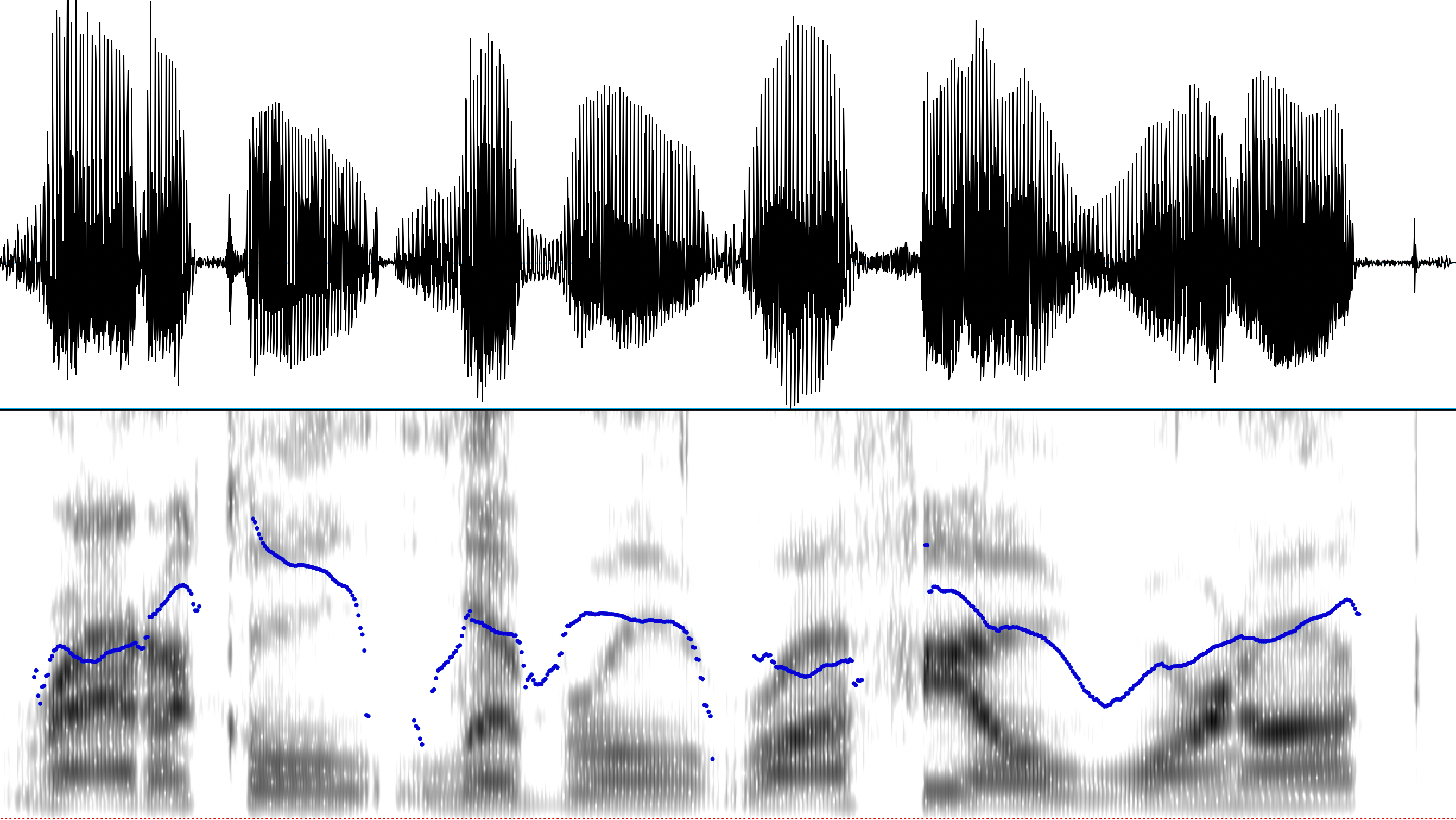
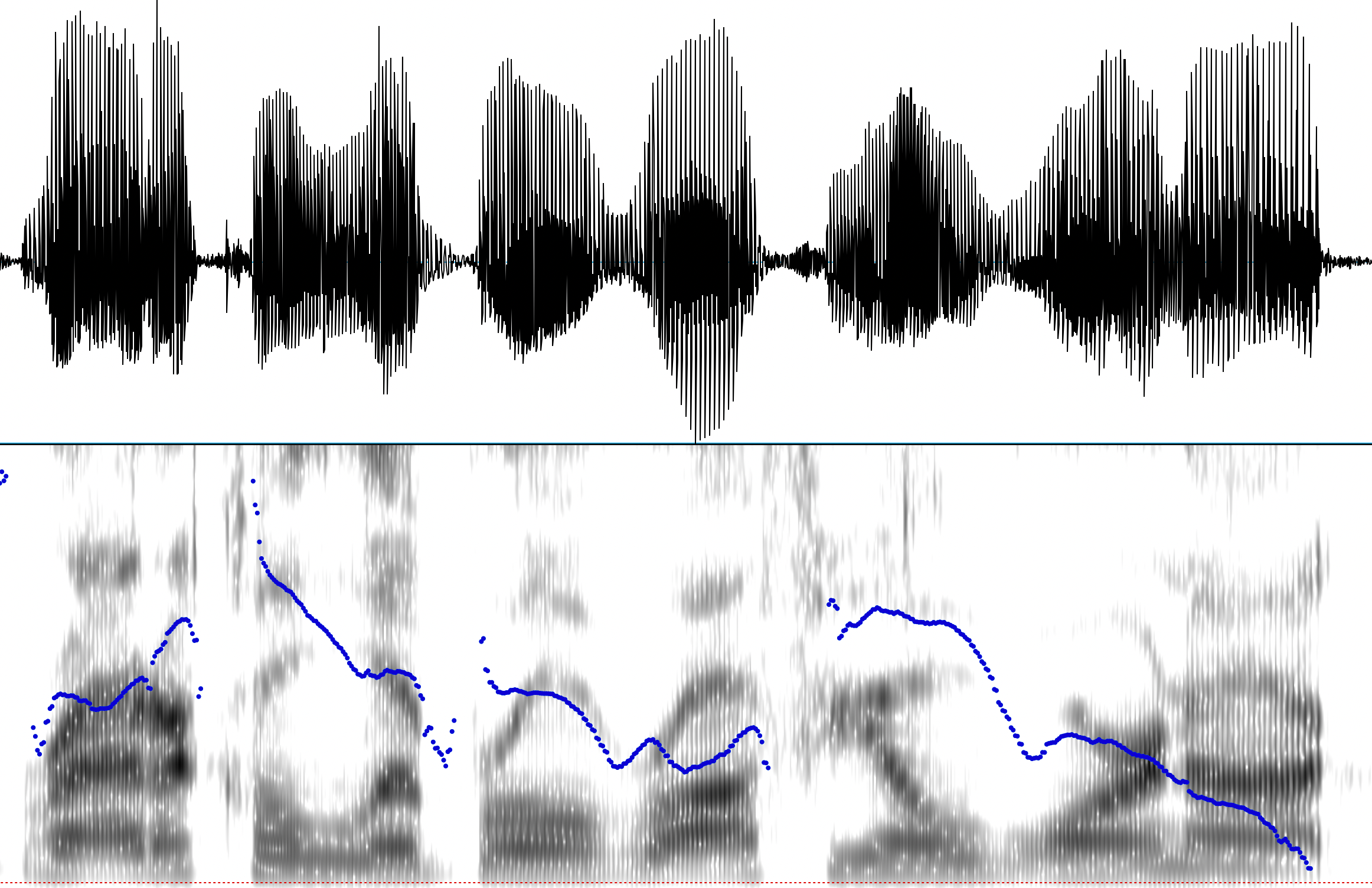
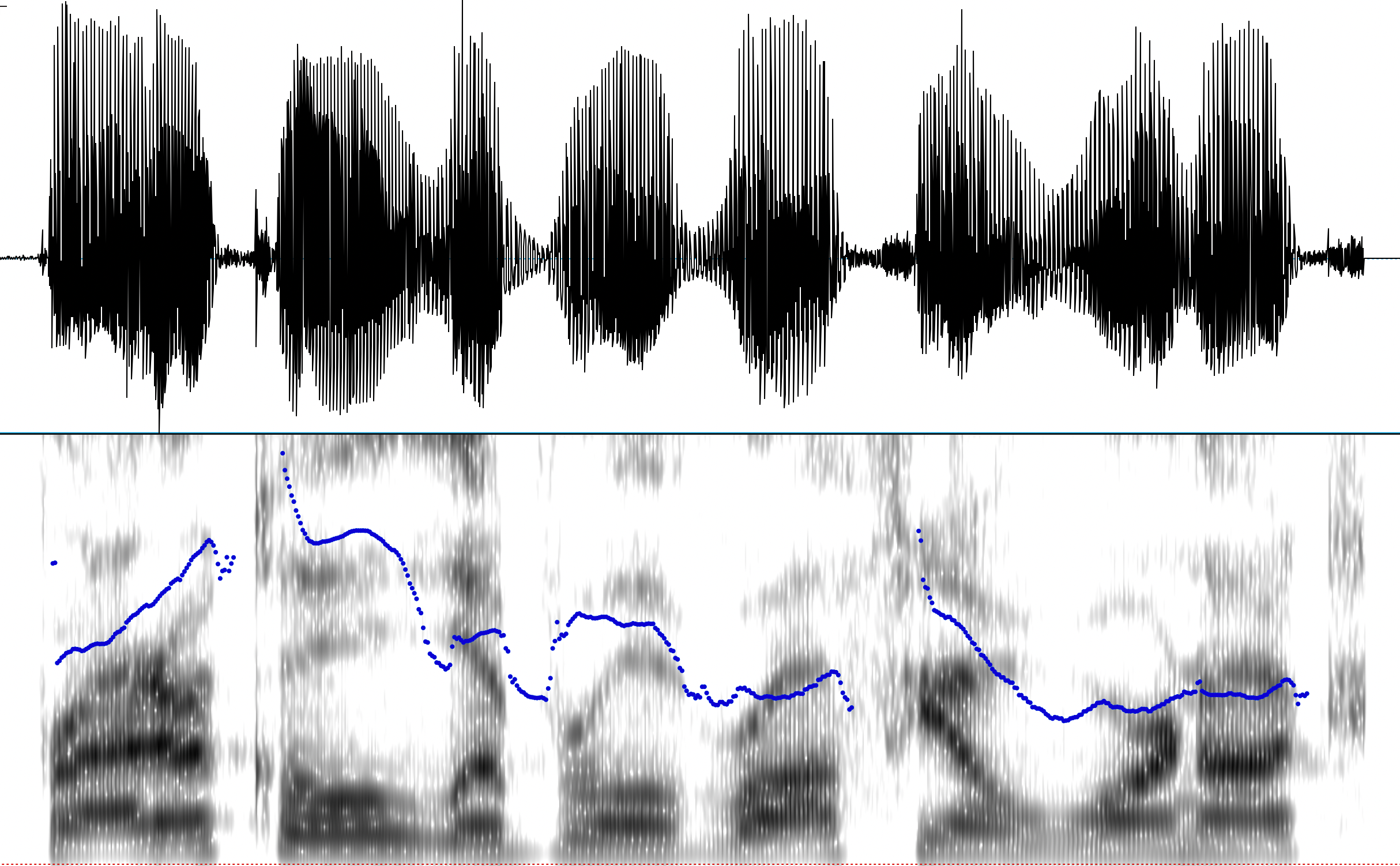
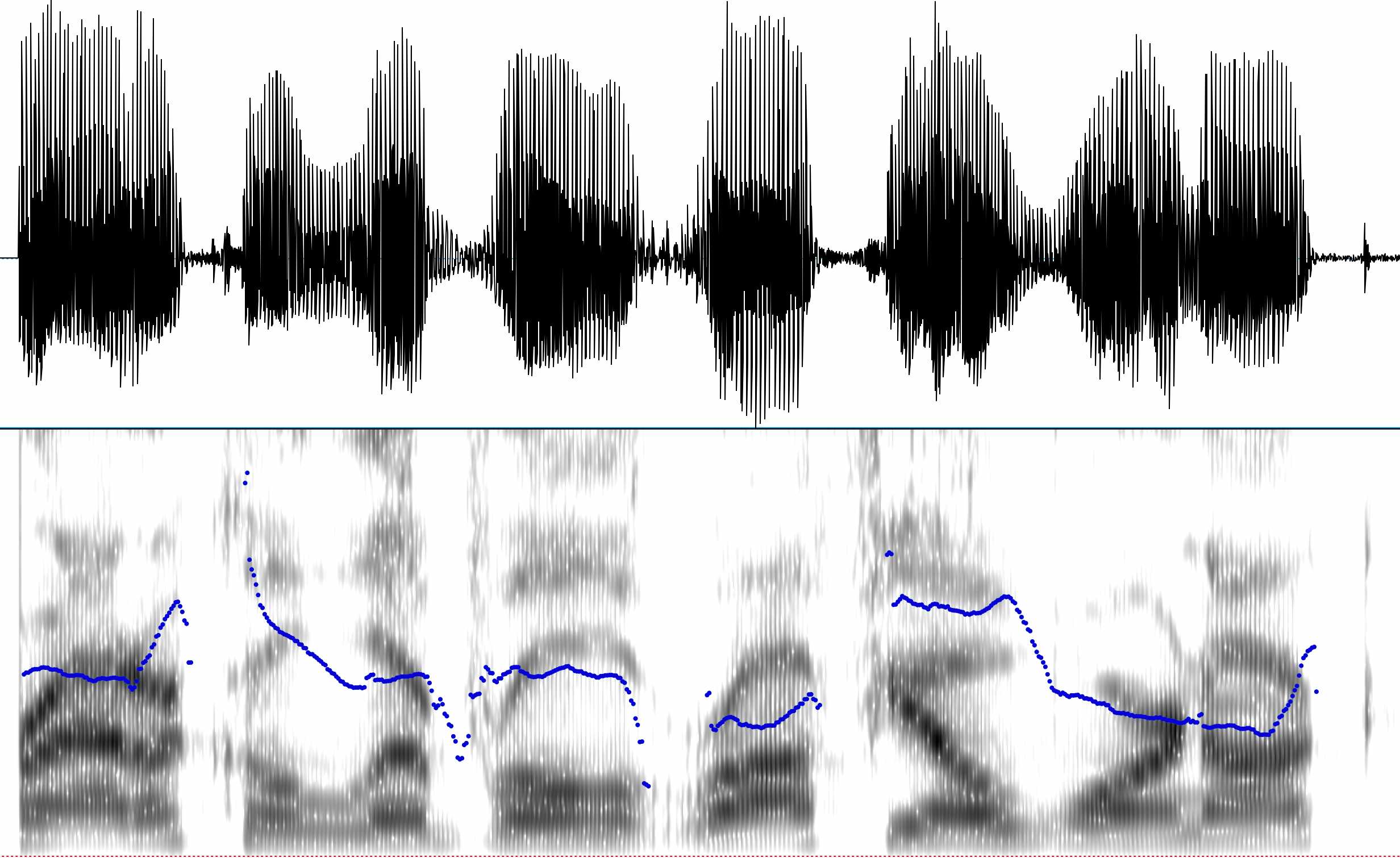
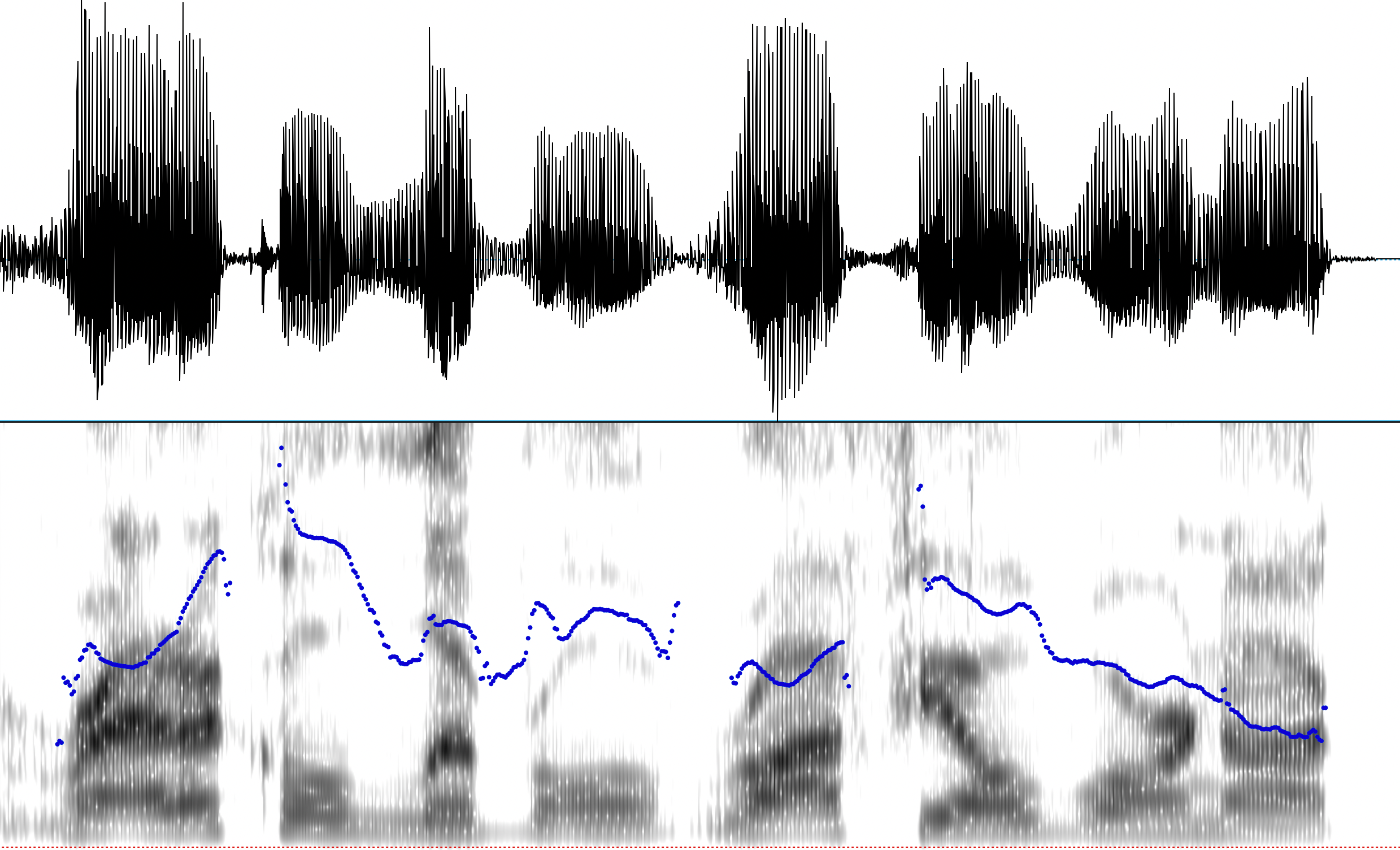
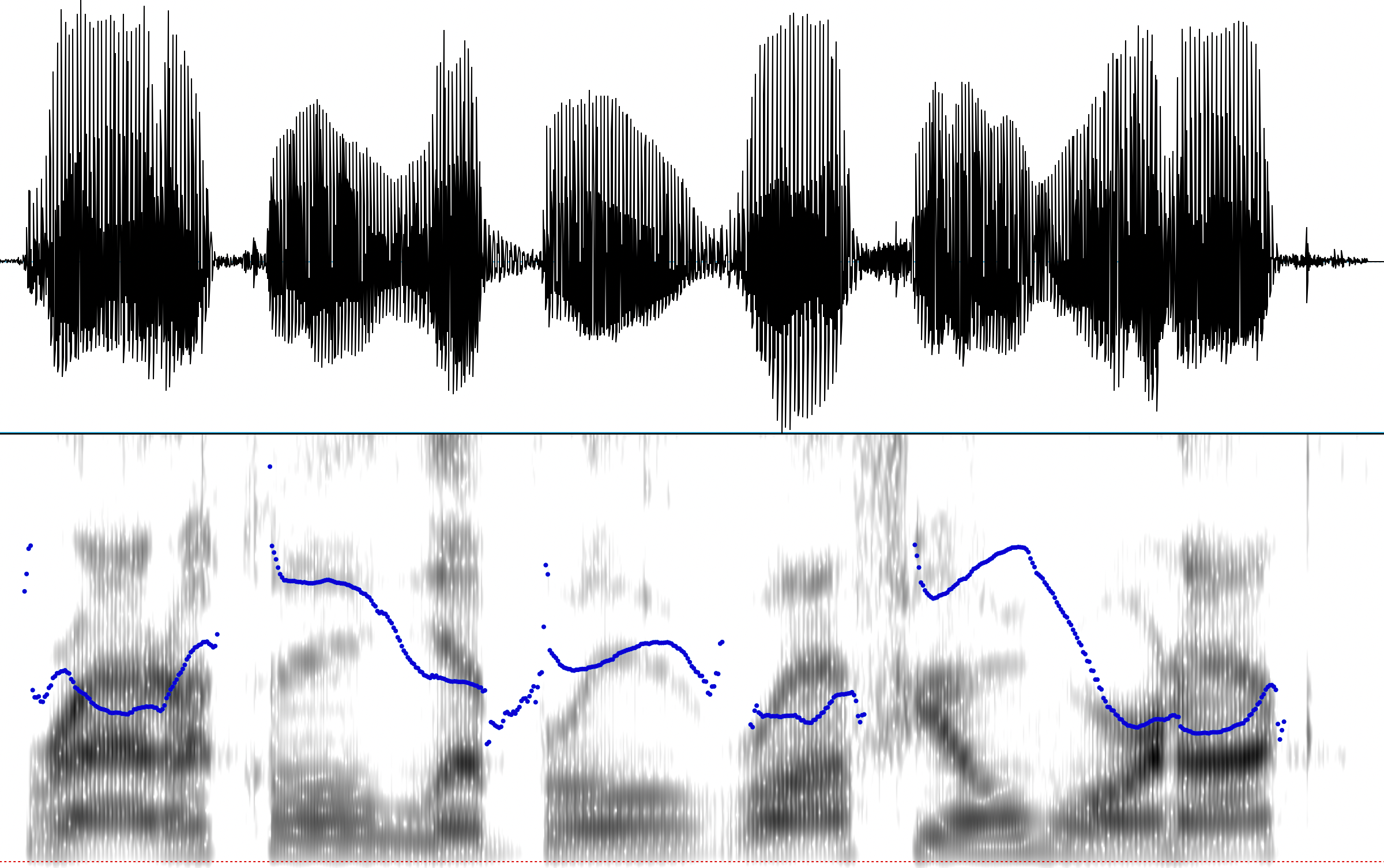
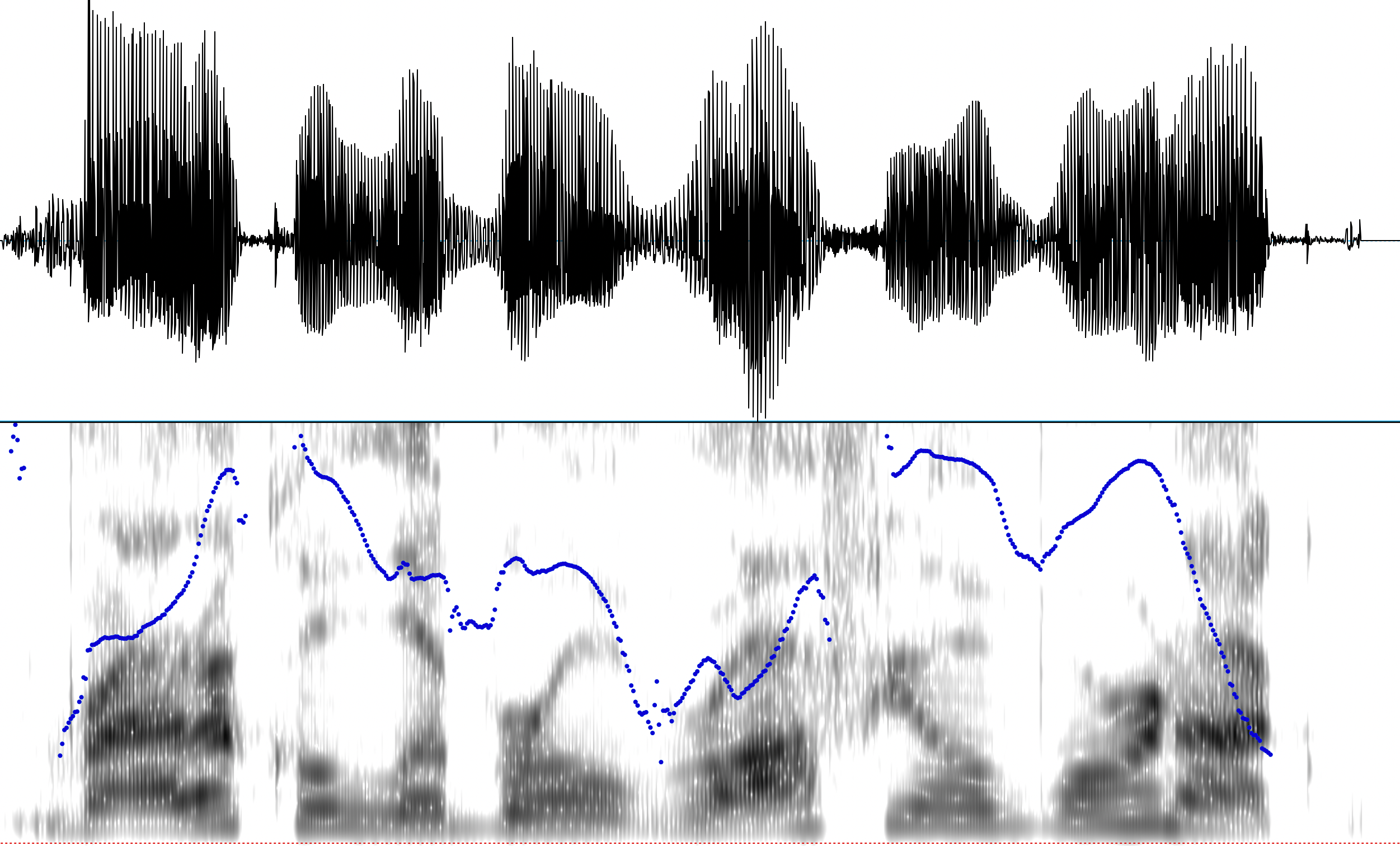
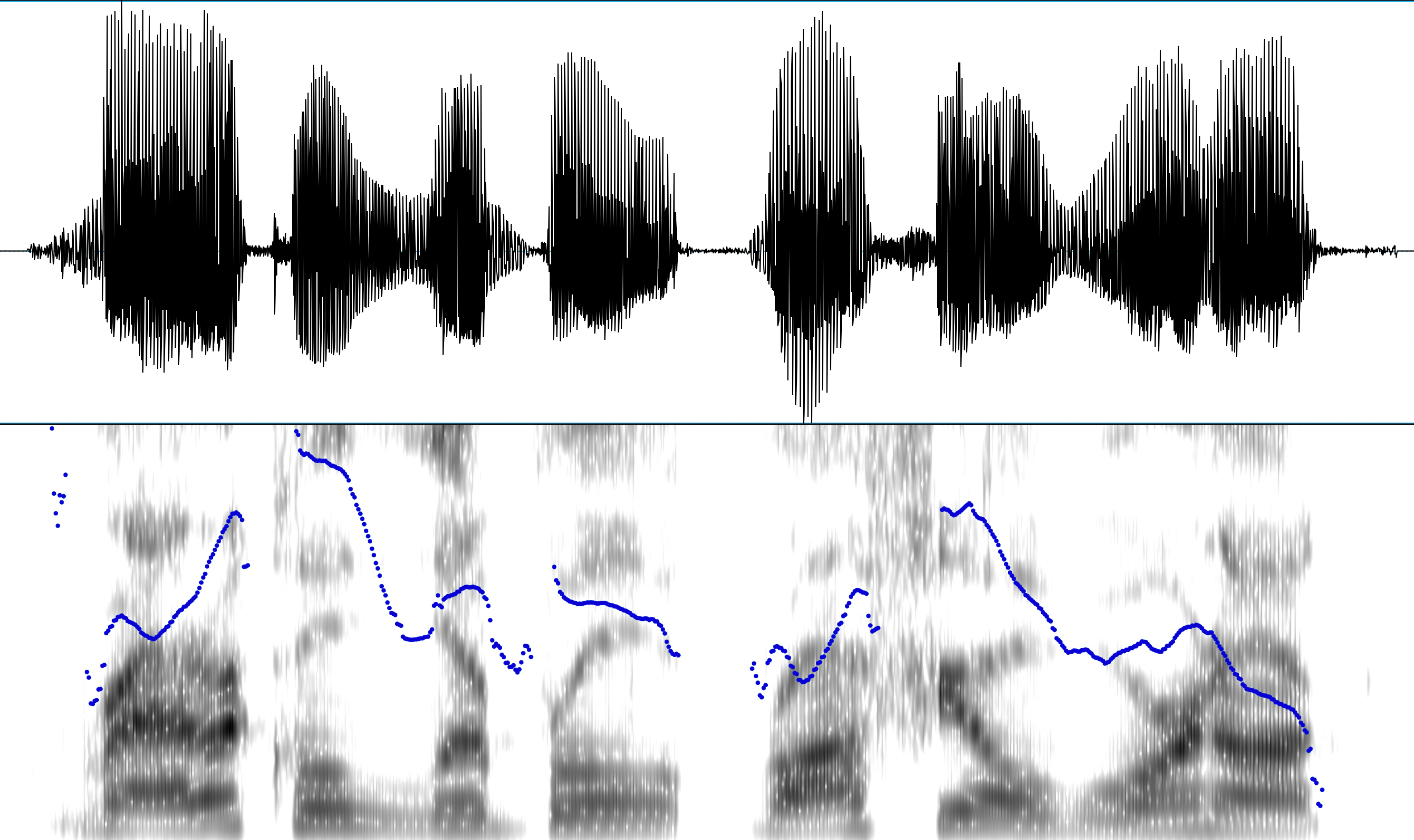
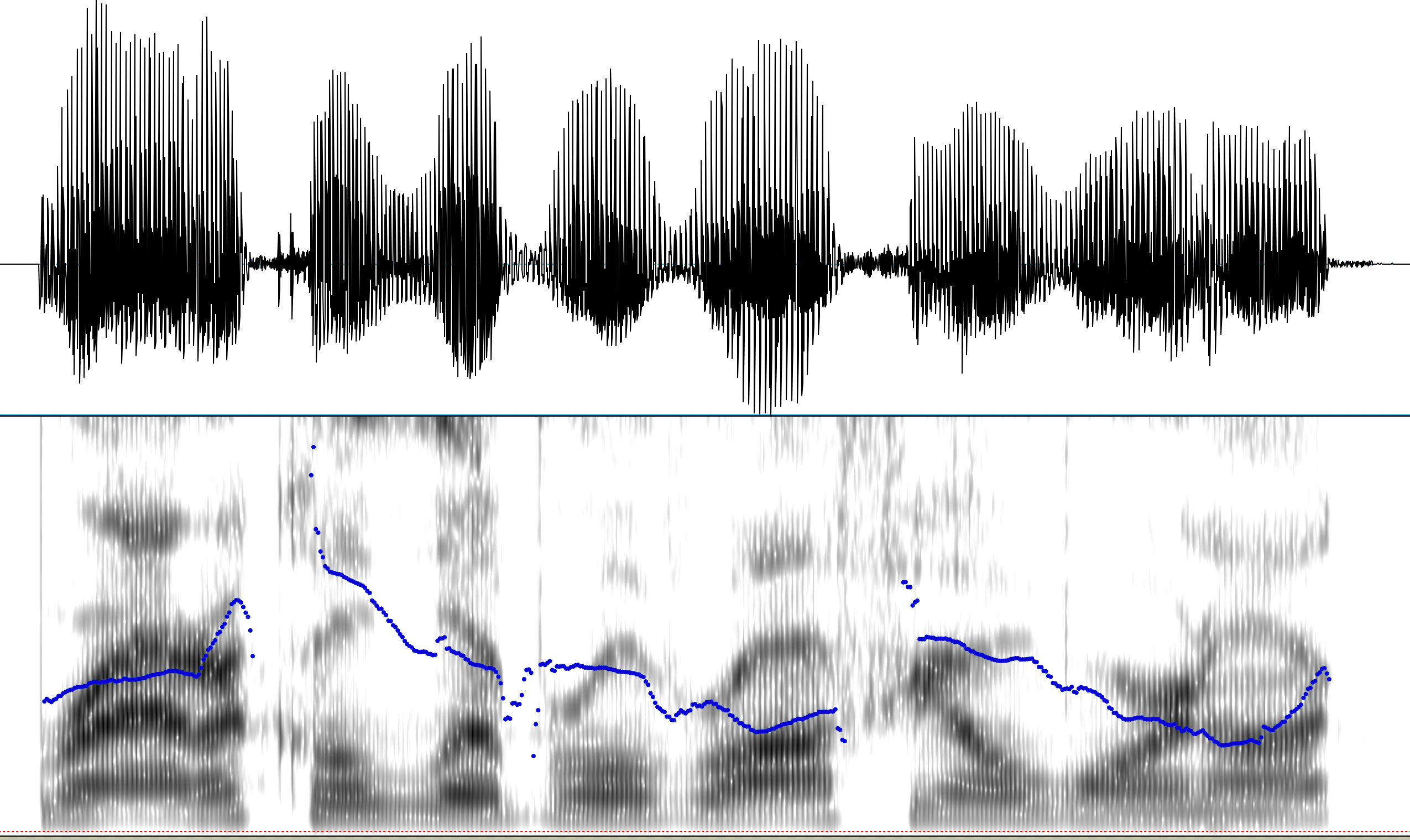
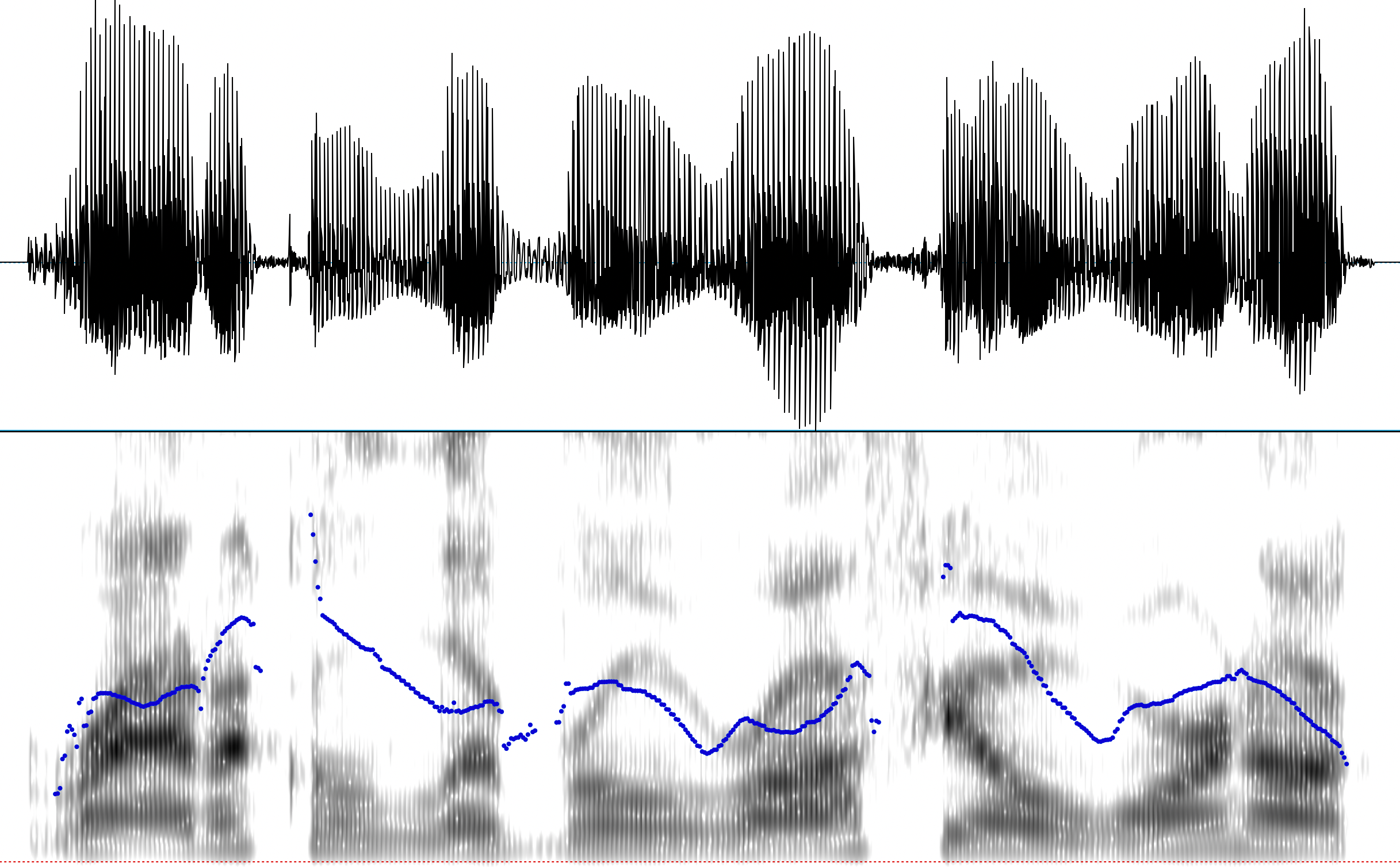
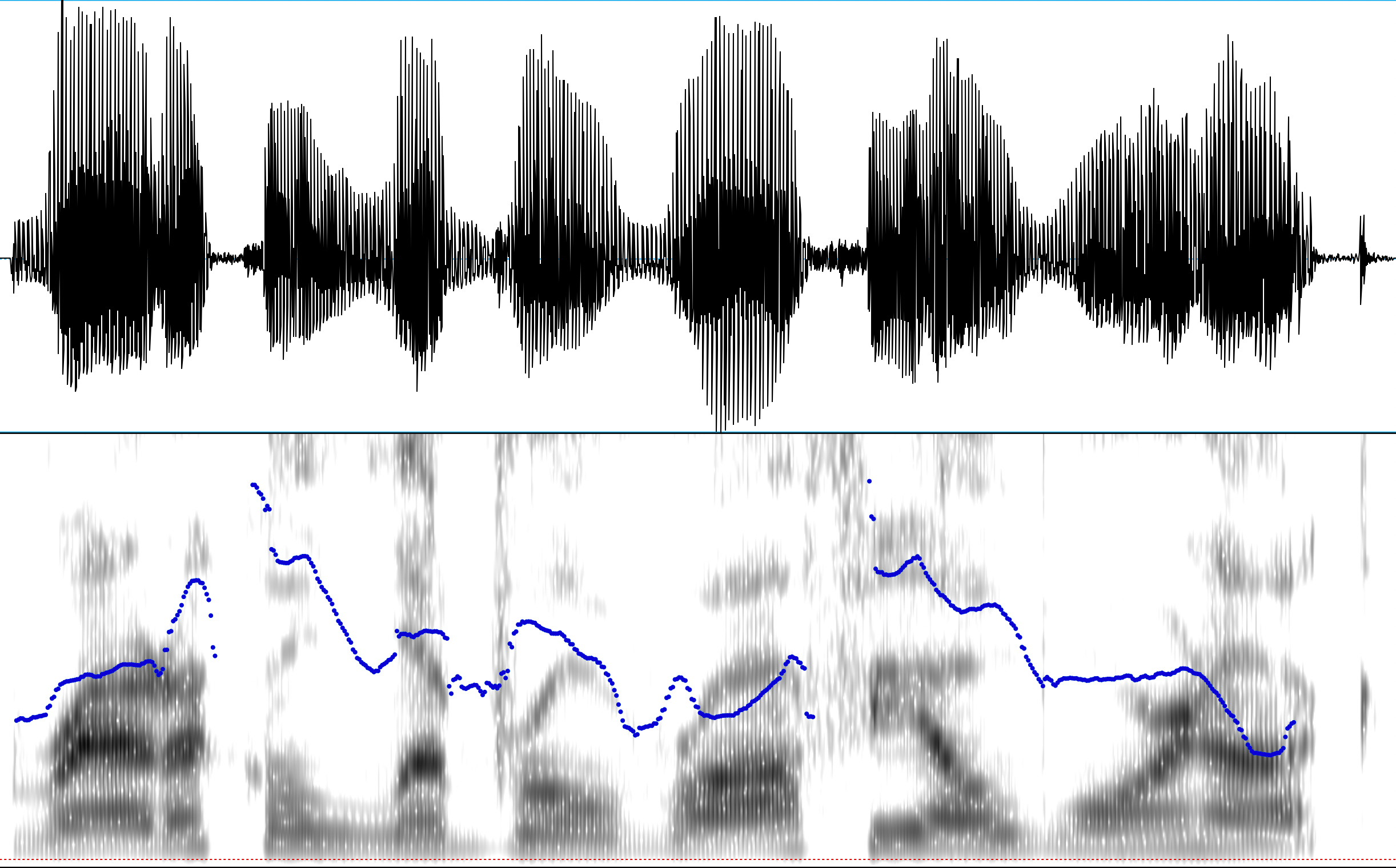
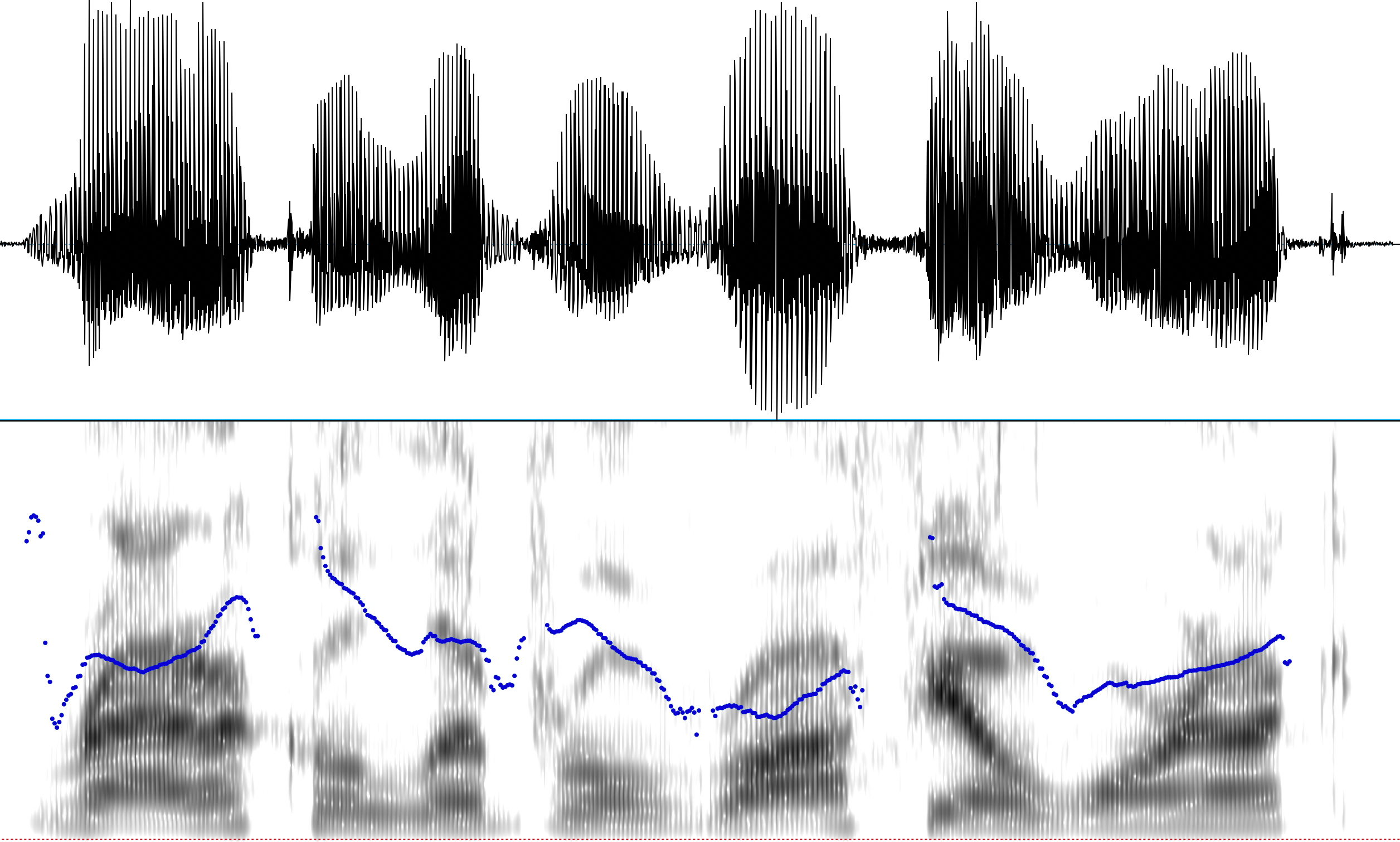
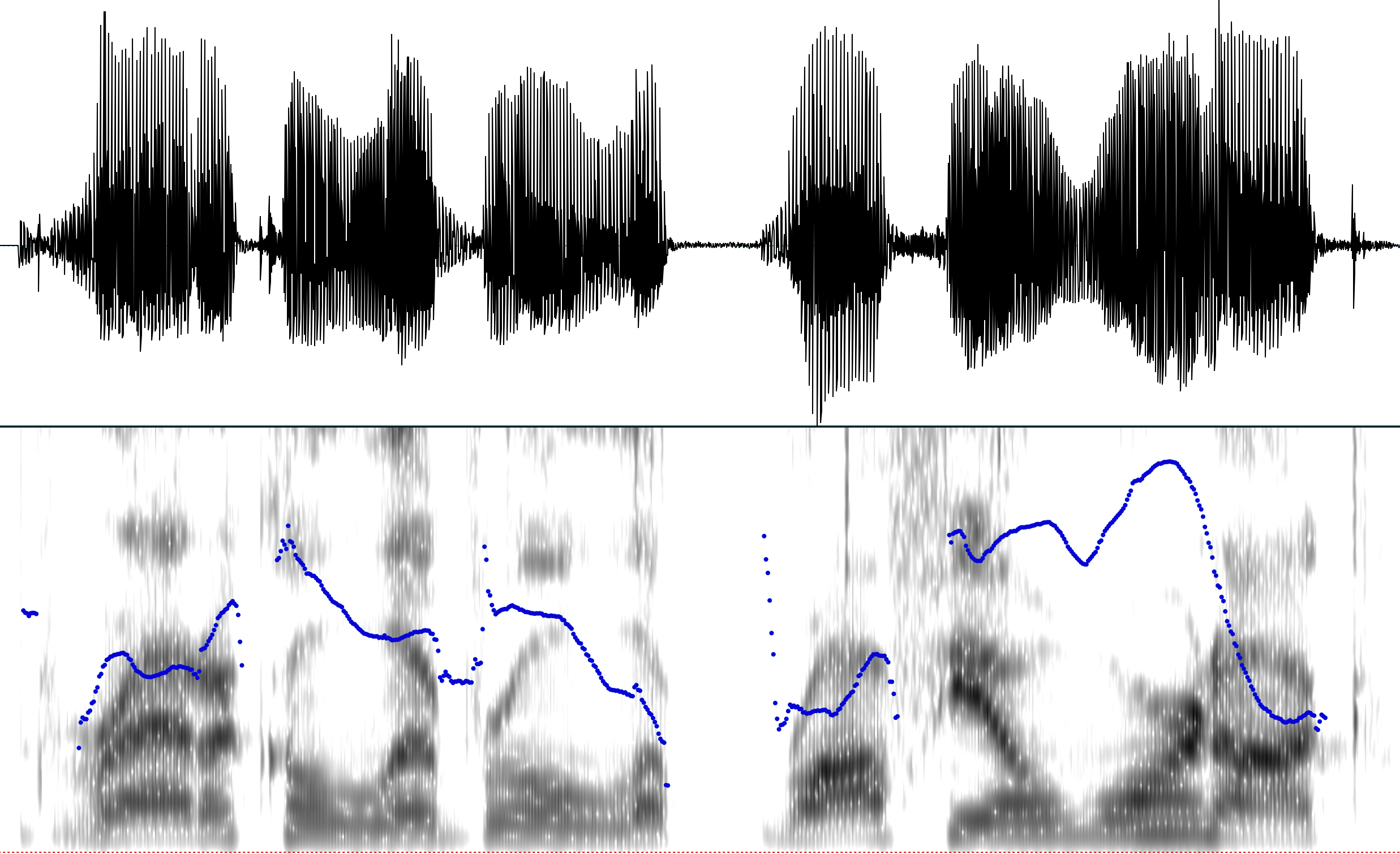
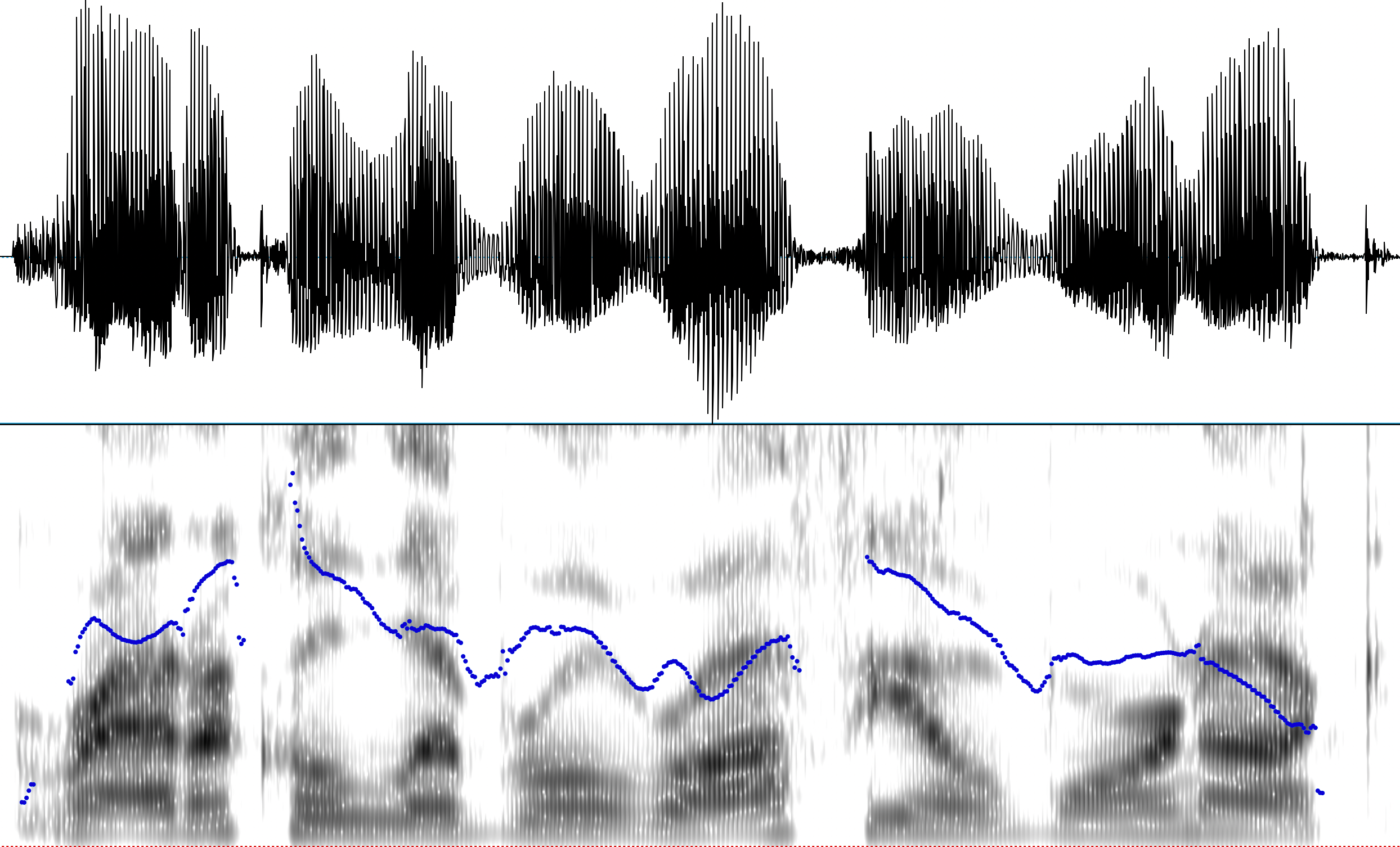
D.O. said,
December 8, 2020 @ 3:26 pm
For me (not a native English speaker) it has a bit of a tongue-twister quality. "RadicaL LibeRaL" those Rs and Ls require careful placements. And then they are followed by "RaphaeL WaRnock", but that seems to be less of a minefield. Also /d/ and /b/ inside the words might give some trouble. But Sen. Loeffler is on top of her game.
F said,
December 8, 2020 @ 4:57 pm
Sing it to the tune of "Actual Cannibal Shia LaBoeuf".
K said,
December 8, 2020 @ 5:00 pm
I reopened this post to comment exactly that.
maidhc said,
December 8, 2020 @ 5:44 pm
I am reminded of this long-ago discussion of the anarthrous NP in the literary style of Dan Brown ("Renowned curator Jacques Saunière staggered through the vaulted archway of the museum's Grand Gallery.").
Viseguy said,
December 8, 2020 @ 8:47 pm
My first reaction was, "Why have debates in this country?" Then I remembered a game we used to play when I was growing up in Brooklyn in the 1950s. You'd take a phrase and say it fast, out loud, over and over, until it morphed into something else. It was a lot of fun. So I did this in my head with my first reaction, above, and ended up with, "Why is the base this country?"
Jerry Friedman said,
December 8, 2020 @ 11:42 pm
This can only mean a double dactyl.
Radical liberal
Raphael Warnock is
Deep in a run-off for
Senate this year.
Loeffler's debate ploy is
Over-repetitive,
Sounds just like music to
Raphael's ear.
Yerushalmi said,
December 9, 2020 @ 1:17 am
I'm starting to wonder how many of these politics-related posts are less interesting encounters with linguistic phenomena and more excuses to mention politics… :)
David Marjanović said,
December 9, 2020 @ 7:50 am
I'm more surprised that Raphael became Raph[i]el with, consistently, a loud & clear [i].
Jonathan Ginzburg said,
December 9, 2020 @ 9:38 am
@yerushalmi. Actually this is a topic with various interesting linguistic issues—I was expecting the obvious semantic issue to be raised why is "radical liberal" strange, whereas, say, "radical marxist" normal. This suggests that "radical" is not a "subsective" adjective like "tall" (tall basketball player differs in height from tall building.). Rather, "radical" is actually functioning more like an intersective adjective ("French" French linguist, a linguist who is French)—so calling someone a radical Marxist is accusing them of two putative sins being radical and being a Marxist.
This in turns raises the issue of what's wrong with being a radical? First pass: it marks someone being far away from the speaker's own (very reasonable) views. (An ex-Jerusalemite)
Philip Taylor said,
December 9, 2020 @ 10:29 am
Just as I was surprised, perhaps, that "Loeffler" (presumably close to /lɜːf lə/) mutated into "Leffler" (/lef lə/) in the first video.
cervantes said,
December 9, 2020 @ 10:38 am
Err, radical liberal is not alliterative. The r and l sounds in English are quite distinct. It does rhyme, and it's a double dactyl.
[(myl) But "Radical … Raphael …" is certainly just as alliterative as "Looting Loeffler" or "Diaper Donald", even if there are words in between the initial /r/s.]
Rodger C said,
December 9, 2020 @ 10:45 am
@Philip Taylor: That's the normal American way of naturalizing German names. To attempt an umlauted vowel could be construed as an insult.
Bob Ladd said,
December 9, 2020 @ 11:13 am
@David Marjanović:
My response to you is essentially what Rodger C just replied to Philip Taylor. Under some set of phonological conditions that I can't quite define precisely, an unstressed vowel following a stressed syllable and immediately followed (i.e. in hiatus) by another vowel regularly turn into /i/ in English. Other examples that come immediately to mind are Israel and karaoke. I'm sure there are more, and it would be a nice phonology course problem to specify the exact conditions under which this happens. Maybe it only happens when it's spelled with the letter A?
Robert Coren said,
December 9, 2020 @ 11:33 am
There's the normalization of political name-calling, especially in the form of alliterative epithets, for which we have Donald Trump to thank.
Perhaps one has to be above a certain age to remember Spiro Agnew's "nattering nabobs of negativism".
Philip Taylor said,
December 9, 2020 @ 11:40 am
"To attempt an umlauted vowel could be construed as an insult". I am absolutely staggered. How could attempting to pronounce someone's name correctly be construed as an insult ? OK, if Kelly Loeffler herself chooses to Anglicise (?Americanise?) her name, and pronounce it as /lef lə/, then I can accept that it would be somewhat ill-mannered to insist on pronouncing it otherwise (e.g., in the German manner), but certainly not an insult. Indeed, it is not at all clear to me what the implied insult would be. Would a Polish American be insulted if addressed as (e.g.,) "Włodek" (/vwɔdek/) rather than "Wlodek" /wləʊdek/ ?
Terry K. said,
December 9, 2020 @ 12:23 pm
Based on the fact that she was born in the U.S., my best guess is she didn't choose to anglicize (americanize) the pronunciation of her name, but rather, she got her name with that pronunciation from her parents. To pronounce her name as if she were German would be a mispronunciation. Which, yes, can be an insult.
Terry K. said,
December 9, 2020 @ 12:25 pm
Oh, forgot to add, Wikipedia gives the pronunciation of Loeffler, for Kelly Loeffler, as /ˈlɛflər/.
Bob Ladd said,
December 9, 2020 @ 2:03 pm
@Philip Taylor: The point is that in the American context Loeffler is not a "German" name but an American name, and there are pretty standard conventions for dealing with UE and OE that certainly don't involve front rounded vowels. It seems to me that all of the large immigrant groups from the late 19th and early 20th centuries have anglicized names or at least anglicized pronunciations and wouldn't expect it to be any other way. When I still lived in North America I knew someone whose surname was Przybyla, pronounced [prɪzˈbajlə]. There was a Rhode Island congressman by the name of Di Prete who had an election slogan "Repeat with Di Prete" (it rhymed). I knew someone whose surname, Nakada, on one occasion got transformed into Nicotta (homophonous for most Americans). And so on. Rodger C. may be exaggerating a bit, but he's clearly right that deliberately pronouncing one of those names in the original language would carry some additional message. The famously xenophobic American linguist Robert A. Hall, whom I knew at Cornell 50 years ago, routinely pronounced Chomsky's name with initial [x]. It wasn't meant to be friendly.
Philip Taylor said,
December 9, 2020 @ 2:13 pm
Many of the points made above I take without argument, but I still cannot see how/why, even if "To pronounce her name as if she were German would be a mispronunciation" could possibly imply "Which can be an insult". What on earth is insulting in the suggestion that someone might be German ? Or any other race, for that matter ?
Barbara Phillips Long said,
December 9, 2020 @ 2:16 pm
@Philip Taylor — I think Terry K. has it right. Also, remember the U.S. has had a lot of different waves of immigration from various areas of Germany. I grew up in an area of New York state that had a lot of Palatine German immigrants from the time of England’s Queen Anne, lived in Kentucky for a while where there were multiple waves of German immigration during the 1800s, and now live in Pennsylvania, where various groups of German immigrants included Amish and Mennonites and also the so-called Pennsylvania Dutch. (Pennsylvania is also interesting given the role of Hessian mercenaries in the Revolutionary War here, Benjamin Franklin’s unhidden dislike of Germans, the routes through the state that took Germans into the Ohio River valley to settle, and the use of parts of German culture in the contemporary tourist industry.) Decades and centuries of assimilation have affected name pronunciation, although anti-German sentiment during the World Wars is also a factor.
Ignorance of German may also be an element of altered pronunciations. In my experience, French and then Spanish, not German, were more commonly taught in U.S. secondary education in my lifetime.
This paper focuses on first names, not surnames, but may give you an idea of the hostile-to-German cultural forces at work in the World War I era in the U.S.: http://cpd.berkeley.edu/wp-content/uploads/2017/04/AntigermanismApril2017.pdf
This thesis explores similar assimilation issues in Canada after World War II: https://open.library.ubc.ca/media/download/pdf/831/1.0092139/1
This Wikipedia entry discusses a variety of alterations to names from different languages in various English-speaking countries: https://en.wikipedia.org/wiki/Anglicisation_of_names
Cameron C Artigue said,
December 9, 2020 @ 2:33 pm
I think "attack" better captures the issue than "insult." If there is a wide consensus about a name's pronunciation, which is also shared by the person in question, pronouncing it in the original tongue is unfriendly. It connotes foreign-ness, that the person is an outsider; the original pronunciation reflects xenophobia. It's not a neutral, sly observation about the "race" of the person's ancestors.
J.W. Brewer said,
December 9, 2020 @ 3:45 pm
@Barbara Philips Long: If you go back far enough, i.e. before WWI, German was I believe the most common modern foreign language taught in US high schools (in those days most people didn't go to high school at all but if you did you probably did Latin), with French a bit behind and Spanish a distant third. Not just because of immigration patterns but because German was the dominant international language of scholarship in the 19th century and many of the (very few) American academics with Ph.D's had gone to German universities to get them.
That said, I expect that most German-Americans outside areas with a high percentage of unassimilated new arrivals had anglicized the pronunciations of their surnames, sometimes with respelling, sometimes not, long before WW1. E.g. it wasn't as if the famous Kentucky Beam dynasty of whiskey distillers had kept their surname as Boehm (and with a echt-Deutsch pronunciation of the "oe") until 1917 and then suddenly realized it was a political liability. Rather, that shift seems to have happened by circa 1795.
I can assure Philip Taylor that if I had pronounced the surname of one of the American kids I grew up with from the Zimmerman family in the fashion we learned to pronounce the occupational-title noun "Zimmermann" in German class it would have seemed quite weird and likely been taken as insulting (unless taken as jocular in a context where jocularity was appropriate). I think a very high percentage of Americans would have the same intuition. Even if one accepts that there is nothing inherently wrong with being German rather than American, most people think that the U.S. Senate should be populated with Americans rather than Germans, just as the Bundesrat should be populated with Germans rather than Americans.
J.W. Brewer said,
December 9, 2020 @ 4:00 pm
As to substance, "radical liberal" is just the expansion of the clipped "rad-lib," which is a sufficiently well-established pejorative to be in this online dictionary which I don't think is a crowdsourced amateur thing: https://www.collinsdictionary.com/us/dictionary/english/rad-lib.
Interestingly enough I think "rad-lib" is used both by right-of-center folks like Sen. Loeffler looking for a pejorative, but also by hard leftists who think the "lib" part is pejorative from a different perspective, as seen by another online source that explains it thusly: "radlib, a portmanteau of 'radical' and 'liberal', is a term used by revolutionary anticapitalists to describe people who pretend to be radically opposed to the capitalist-imperialist status quo, but defend the system in practice, allying with liberal democrats and other counterrevolutionaries."
Terry K. said,
December 9, 2020 @ 5:04 pm
@Philip Taylor. It's not about race. One's ancestor's having immigrated from one country to another doesn't change one's "race". It's about nationality and language. Which, in this case, are American and English.
Jerry Friedman said,
December 9, 2020 @ 6:12 pm
Jonathan Ginzburg: Not being very familiar with right-of-center name-calling, I'd say "radical liberal" is strange because "liberal" usually means "left of center but not radical". As J. W. Brewer said, radicals criticize liberals.
Bob Ladd: And what about "Naomi"? Some people pronounce the first syllable with the FACE vowel and some (including me) with the PRICE vowel, but I haven't heard it with FLEECE.
Philip Taylor: At the very least, deliberately pronouncing someone's name differently from the way they pronounce it is rude.
In particular, using a non-native sound (since few or no varieties of American English have anything like an ö) hints that the person has requested that pronunciation and thus wants other Americans to pronounce it in a way that's hard for almost all of them. That may not be insulting, but it would certainly mischaracterize Senator Loeffler. From a political opponent, it might also be understood as an ethnic insult, since it emphasizes her ethnicity, and anything an opponent emphasizes would be taken as criticism.
Of course, insulting someone's German ancestry would be completely futile in America. I can't imagine that mispronouncing Loeffler's name ever crossed the mind of Warnock or anyone in his campaign.
Barbara Phillips Long said,
December 9, 2020 @ 7:21 pm
Cervantes notes that “radical liberal” is not alliteration.
“Radical liberal Raphael Warnock” is an example of consonance and also of assonance. Assonance is the repetition of vowel sounds, and consonance is the repetition of consonant sounds; position at the beginning of the word is not required for either assonance or consonance.
[(myl) And as I wrote in response, "Radical … Raphael …" is certainly just as alliterative as "Looting Loeffler" or "Diaper Donald", even if there are words in between the initial /r/s.]
Jerry Friedman said,
December 9, 2020 @ 11:46 pm
Barbara Philips Long: And in fact, "radical" and "Raphael" alliterate.
Bob Ladd said,
December 10, 2020 @ 3:28 am
@Jerry Friedman: Naomi doesn't fit the pattern I'm talking about, because the syllable in question isn't preceded by a stressed syllable.
Mark P said,
December 10, 2020 @ 9:29 am
Kelly Loeffler pronounces her name as "Luffler".
What was remarkable to me about "radical liberal" was the addition of "radical" to "liberal". Liberal is a common dirty name in the southern US today. Radical is not used nearly as much. Combining them may indicate some fear among the Republican candidates that the Democratic candidates have a reasonable chance of winning. The dirty names would have been different some years ago. It's worth noting that an image of Ossoff, who is Jewish, had the nose enlarged in a Perdue campaign ad, since removed. In any case, they are trigger words for southerners. Combining them was odd, but probably as far as they dared to go.
Rodger C said,
December 10, 2020 @ 10:21 am
To go at this yet another way, as I seem to have started it: A person named Loeffler in England is probably a German national, and one respects them by not mangling their name. A person named Loeffler in America has probably had American ancestors since at least 1848, and one respects them by addressing them as an American.
And if I met an American named Wlodek, I'd probably call them "Low-deck."
Robert Coren said,
December 10, 2020 @ 11:16 am
The lead radio broadcaster for Boston Red Sox baseball games is named Joe Castiglione, and he and everyone else pronounces his surname /kæ stı li oʊn/ (I'm not sure about that ʊ, but I can't find what I thought was the right character; and my attempts to incorporate the correct inter-syllable marks didn't work the way I intended; stress on last syllable). I'm not about to insist on calling him /ka sti ljo nɛ/, just because that's how his Italian ancestors pronounced it.
Jerry Friedman said,
December 10, 2020 @ 2:43 pm
Bob Ladd: Thanks, I missed that in your first comment.
There's one with a <u> pronounced [i], isn't there? It's right on the tip of my cerebrum.
J.W. Brewer said,
December 10, 2020 @ 3:46 pm
I decided to check "radical liberal" in the google n-gram viewer against various pejorative synonyms I could think of and somewhat to my surprise it seemed to be the market-segment leader, more commonly used (in that corpus) over the last few decades than #2 "ultra-liberal," #3 "extreme liberal," or #4 "liberal extremist." It used to be #3 but overtook "extreme liberal" in 1967 and then passed "ultra-liberal" in 1985.
Maybe if one delved into the context of the hits there would be a pattern that makes one of those other synonyms still more likely in a context like that in which Sen. Loeffler was speaking? But it does seem that if you found her expression weird you should come up with a candidate synonym you think fits her intended meaning and the context better (I've quite possibly overlooked an obvious one) and then do a bit of corpus linguistics to see how your proposal fares against real-world data.
Haamu said,
December 10, 2020 @ 7:05 pm
The history and evolution of this phrase could probably occasion another interesting LL post. I don't have the linguistic chops to provide much more than a quick overview.
Like Robert Coren, I'm old enough to remember Spiro Agnew, who was not merely alliterative, but mean. He (or his speechwriters, possibly Safire) have a plausible claim to authorship of "radical liberal" as a unitary epithet, particularly in the 1970 Senate campaign, as noted by Time Magazinein September of that year:
Agnew was happy to sling the term not only at Democrats, but at fellow Republicans as well, in both the Senate and the House. He liked the phrase so well, he's also credited with personally coining the more efficient "radiclib" and passing it on to H.R. Haldeman and other Nixon White House worthies.
Non-pejorative uses predate Agnew, though. If we ignore the appearance of "Radical Liberal" in the names of various political parties in Europe and Latin America in the 19th and early 20th centuries, the most notable early occurrence is probably in the title of Arnold Kaufman's 1968 book, The Radical Liberal: New Man in American Politics. Kaufman's contributions to the 1960s New Left movement are largely overlooked today (unjustly, in my opinion), but he's credited with developing the idea of "participatory democracy" (and coining the term in 1960), mentoring Tom Hayden and other dissident leaders, strongly influencing the text of the 1962 Port Huron Statement and giving the closing speech at that conference, and helping to lead the very first "teach-in" in 1965, going on to popularize the technique as a tool for non-violent activism.
Kaufman's concept of "radical liberal" was intended positively and contained a duality: he proposed to synthesize an idealistic, nonviolent radicalism with traditional liberalism. In his view, there was little or no overlap, but there should be. Had he not been killed in a plane crash in 1971, he might have helped steer the Left more in that direction.
Agnew, on the other hand, saw plenty of overlap. His usage of the phrase two years later contrasted not merely by being negative, but by largely dropping the duality. You can parse it as an adjective "radical" modifying a noun "liberal," but it seems clear that you have at best a shading of one concept rather than a synthesis of two. And given the freedom with which Agnew applied the term (seemingly to anyone on Nixon's "enemies list"), it isn't clear that he was being too particular with the shading.
The phrase has remained in vogue among certain U.S. conservatives in the decades since, but I would contend that the evolution has continued until all traces of duality have been eradicated. "Radical Liberal" is now nothing more than a bit of memetic engineering intended to achieve the complete conflation of "radical" with "liberal," i.e., one cannot be a "liberal" without also being a "radical." Not just overlap, not just synonymy, but identity.
Contra J.W. Brewer's suggestion, the phrase isn't trying to pinpoint a spot on a spectrum between slightly liberal and insanely liberal. It's saying there is no spectrum; there's only the insanely liberal endpoint. It's an exercise in Hebbian conditioning, and that's why purveyors like Loeffler are instructed to repeat it so unfailingly, and why, if they lack talent in their delivery, they end up sounding like robots.
chris said,
December 10, 2020 @ 10:05 pm
I'd say "radical liberal" is strange because "liberal" usually means "left of center but not radical"
I interpreted this similarly to Haamu: "radical liberal" is an accusation that one who presents themselves as liberal is actually radical.
Or, of course, from a Republican perspective the difference is insignificant.
The subthread on name pronunciation reminds me of the bit in _Young Frankenstein_ where the title character insists on a particular pronunciation of his name to distinguish him from his infamous relative (I don't know IPA but at least two vowels are quite different). Once someone informs you of *their* preferred pronunciation of their own name, using anything else might be interpreted as hostile, whether it was intended that way or not.
At least her name isn't Raymond Luxury Yacht.
Benjamin E. Orsatti said,
December 11, 2020 @ 9:41 am
Robert Coren,
Dear friend, sit, let me pour you a drop of wine, and listen as I relate to you the woes of having to bear a settentrionale name in North America.
Progressing from Ursus>Orso>Orsato>Orsatto>Orsatti as the idylls of Lombard country by the shores of Lake Como emerged from the Middle Ages, my surname, and others like it, are spoken with pride throughout our fair peninsula.
Across a much larger expanse of water, however, it presents somewhat of a phonetic inconvenience. Here are our options (for convenience, "r" will represent normal North American rhotic "r", and "rr" will represent the Italianate "trilled" r, while "d" will represent a voiced "flap", "t", an unvoiced flap, and "tt" and "dd" will represent the ordinary "t" and "d" sounds):
(1) "Orsahdi" — ugh!
(2) "Orsahtti" — also grotesque; American English doesn't "do" a penultimate "tt" sound, and it sounds forced, unnatural, and, at worst, pedantic.
(3) "Orrsahtti" — consistent: if you're going to go with the final "tt", you might as well go all in and roll your "r"'s, but, in practice, it's even more jarring to throw that in the middle of an American English sentence, and people will think you are very strange indeed. For some reason, Italians aren't "allowed" to suddenly throw in a native name pronunciation, a privilege which only seems to have been afforded to hispanic television and radio broadcasters.
(4) "Orseti" — believe it or not, this is the one that most of us have settled on. Changing the "a" to "e" at least changes the voiced flap to an unvoiced flap, and seems to be the lesser of all evils.
Incidentally, please don't ever say "Orsæti".
È reale, la lotta.
J.W. Brewer said,
December 11, 2020 @ 7:42 pm
I think my view may have been misunderstood. I don't think "radlib" (or "radiclib") when used by a center-right polemicist means some sort of halfway point along the spectrum of liberalism from moderate to extreme, rather it's intended to suggest that the person so labeled is all the way to the bad/extreme/frightening end of that spectrum, while tacitly conceding that the person is not so far left as to be beyond the spectrum of "liberals" broadly defined, e.g. an actual revolutionary Marxist of the sort that views "liberals" as bourgeois apologists for the status quo. Indeed, given Agnew was trying to say that most Democratic Senators in his day were sort of liberal but only a relatively small subset of them were "radical liberals," Loeffler is presumably trying to make a similar point by suggesting that even Georgia swing voters who would be comfortable being represented the median current Democratic Senator should be worried that Warnock will if elected be significantly further to the left than that. That she can no longer count on 51% of Georgia's voters thinking that a common-or-garden-variety liberal Democrat would be beyond the pale as their Senator is an indication of how the ongoing national process of partisan realignment has affected Georgia in recent years.
In Agnew's day there was already plenty of "extra-parliamentary" opposition to the Nixon Administration by people sufficiently far left that they used liberal as a pejorative put-down (consider Phil Ochs' mocking song "Love Me, I'm a Liberal" as an indicative cultural artifact). But those people weren't getting elected to the Senate because they weren't getting nominated as Democratic candidates even in the leftwardmost states. And the same is generally true today, with maybe some ambiguity created by the phenomenon of using "progressive" as a self-identifier that avoids/elides the question of whether or not its bearer is within or beyond the "liberal" spectrum.
Barbara Phillips Long said,
December 12, 2020 @ 7:39 pm
At about two minutes into this news report, the attorney speaking says he will be voting for Kelly Loeffler. The accompanying article mentions he mispronounces the name:
https://www.wsbtv.com/news/politics/florida-attorney-under-investigation-registering-vote-georgia-encouraging-others-do-same/L6LTC2AHBFDMXPOTZKVMO5ESJQ/?fbclid=IwAR3gwgQI-1WLyv85k8j0J-ex23wSIQcFMuMoNTidBFzK2XFuTbV63uCZhRQ
ktschwarz said,
December 14, 2020 @ 3:31 am
Bob Ladd asked for examples like karaoke, Israel where an unstressed vowel following a stressed syllable, and followed by another vowel, turns into /i/ in English. Here are some:
* "killyohms" for kiloohms, reported by Jerry Friedman here; more discussion in that thread
* "extryordinary" for extraordinary: google "extryordinary" and you'll find examples in old books and newspapers, in dialogue and quotes representing speech. Kipling has it in one of his "Soldiers Three" stories. These days the a is just dropped instead.
* "tommyhawk" for tomahawk, popular enough in Australia to get into at least one dictionary, also used as a brand name in the US (not sure if the "h" counts as separating the vowels)
I wonder if this has any relation to nonstandard unstressed /i/ pronunciations such as "Santy Claus", the newsboy's "extry", and "hari-kari" for hara-kiri (not accepted by most dictionaries).
john v burke said,
December 19, 2020 @ 3:27 pm
@Jerry Friedman: I remember the double-dactyl verse form as the basis of a late 1960s New York Magazine weekend competition. As I recall the formula, the first line is supposed to be a reduplication, so strictly speaking "radical liberal" doesn't qualify. But otherwise you've followed the rule as I recall it: second line is personal names, sixth line is a single double-dactylic word. Those competitions were fun; I remember another which asked for a verse with the last line "the bloated cadaver of poor Mrs. Hayes."